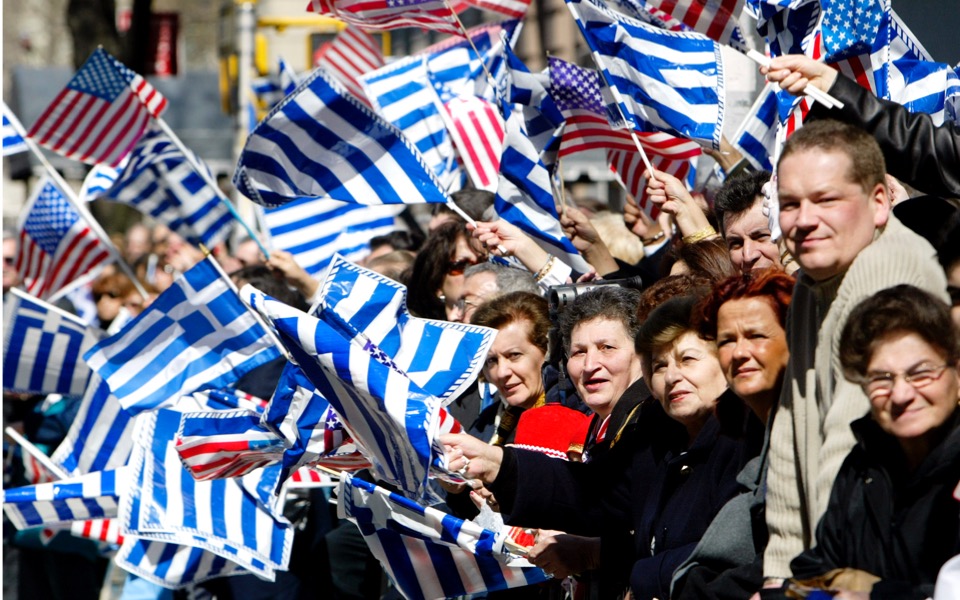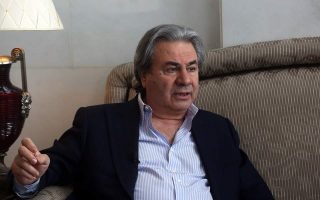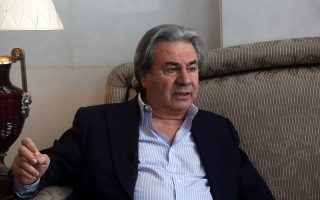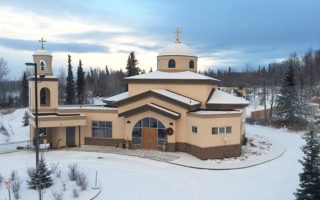Greece must decide what kind of diaspora it wants

NEW YORK – Of the several poignant pieces written about the passing of Nikos Mouyiaris, two of the best appeared in the pages of this paper. Tom Ellis noted that “[Mouyiaris] was sad [about the failures of the Greek-American community] but also angry, and what made him stand out was that he not only saw these shortcomings, but acted to improve them.” Alexis Papachelas gave emphasis to one of Nikos’s biggest turn-offs, noting that “he was saddened by these pointless, shallow, results-free ‘events,’ whose highlight was a photo-op with an American official.” Nikos was never shy about expressing disappointment, but he was never debilitated by it. He – perhaps more than anyone in the Hellenic world – believed that, in the words of Bozoma Saint John, former chief brand officer at Uber, we indeed “have the power to change anything and everything.”
In the process of mourning Nikos Mouyiaris, Greece (and Cyprus) should give a great deal of consideration to the following question: what kind of diaspora would we like to have? Nikos was not only unique in his combination of generosity and vision, but also in his priorities. The Greek-American diaspora has reached an inflection point and the direction in which its leadership shall take it is still uncertain. How the debates currently under way in the community are resolved will most definitely impact Greece.
Take the simple issue of what we call ourselves. There is a member of the Archdiocesan Council from Illinois, who also serves as an archon, who regularly takes to Facebook to declare that he is not a member of any diaspora but an American of Greek descent. Nikos would have rejected this incorrect definition of who is/is not part of the diaspora and even the attempt to split the community into different categories. He spent a lifetime working besides fellow Hellenes – whether they were immigrants, second-generation individuals who might not see themselves as part of a diaspora, or third-generation individuals who reclaimed their Greek citizenship (so were once again part of a diaspora). Nikos also believed that being a Hellene included a certain level of devotion to Hellas, just the way the members of the American Jewish Committee, or of AIPAC or of J-Street call themselves the “pro-Israel community” whether they are members of the Israeli diaspora or not.
Let’s pretend that these are merely semantic differences and perhaps we could all agree on the label “pro-Hellenic community.” Taking the standard set by the aforementioned “pro-Israel community,” how many Greek-Americans spend their time and treasure on a pro-Hellenic agenda, condition their support for candidates on support of such an agenda, and can identify why such an agenda is consistent with/furthers US national security interests and American values? Athens and Nicosia should try to identify community leaders who live up to the standard that Nikos set on these fronts. They will be shocked at the results of that search. If such a definition of being pro-Hellenic isn’t quickly established, the disappearance of a pro-Hellenic agenda from the American political scene is a near certainty.
Nikos also stood apart on issues of culture. He promoted Greek culture by spending significant sums on Greek studies programs at universities, on the efforts of the Benaki Museum, on Greek charter schools, on Greek church schools, on theater and more. Nikos was especially devoted to promoting the Greek language. It bothered him that certain Church leaders resisted (and sometimes actively fought) the establishment of Hellenic charter schools when the Turkish Gulen movement had over 140 of its own charter schools throughout the United States. Nikos would never countenance the exclusion or derision of any Greek American because of language ability and believed that the organized community had not made it easy enough for Hellenes born in America to learn or retain the Greek language. Just months before he passed, Nikos would discuss how to expand Hellenic charter schools, establish more full-time Greek pre-schools and summertime Greek language immersion camps, support the movement to offer classical Greek more widely in the American classroom, and to incentivize more foreign study in Greece by Greek Americans.
It may prove impossible to match Nikos’s penchant for action and for putting “his money where his mouth is” when it comes to Hellenism. The greater danger for Athens and Nicosia is to ignore the dearth of people who care about the same things among his contemporaries. A huge admirer of Ioannis Kapodistrias, Nikos had an abiding belief that we Greek Americans could establish our own Filiki Eteria. Time may still prove him right – he established the Hellenic American Leadership Council (HALC) to recruit the next generation and cultivate them into exactly such a group. Such an aspiration should not be limited to HALC and a few others.
Greece is facing just as much of an inflection point as the Greek-American community is. Its political and thought leaders have to go beyond “missing” Nikos and start challenging all of us to follow his example. Anything less may in fact leave Greece without a diaspora – or even a pro-Hellenic community – here in the United States.
Endy Zemenides is executive director of the Hellenic American Leadership Council.





